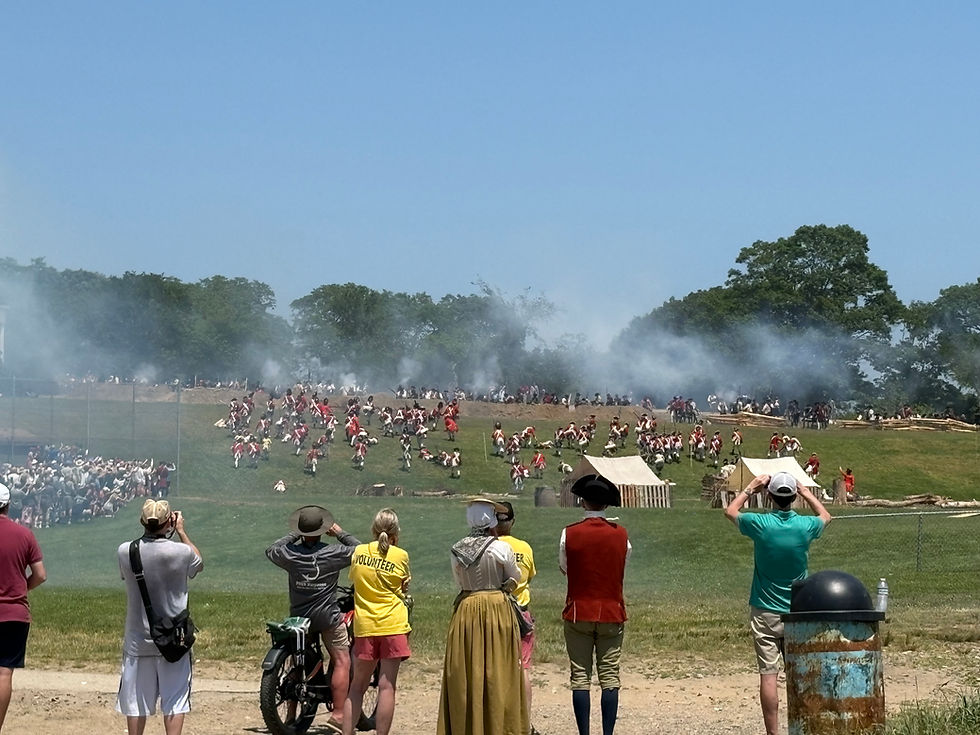When Life Gets in the Way of Writing
- Maggie Meahl

- Feb 27, 2023
- 2 min read
Updated: Mar 11, 2023
Recently I had shoulder surgery. Needless to say, it has somewhat stymied my research and writing. Before that, were the holidays which stopped the momentum as well. Anyway, life happens and one has to roll with it. I feel privileged to be able to indulge myself in my writing a book so I dare not complain.

Where Am I in this Process? A Check-In.
I guess I am over two years into this book project: to document and analyze a family line from Norwich, Connecticut--generation-by-generation--to see how they made their money, who helped them, and how it accrued up until the American Revolution. Then, show how the money and influence trickled down to nothing causing my great-grandfather's family to leave in 1893 after 230+ years in Norwich.

The setting is Norwich. The characters are the Huntington family. The acts and scenes encompass the heart of a rich Norwich history from its time as a rocky Connecticut wilderness with a thriving Native American population to its boom era of the 1740s and 50s when its wealth skyrocketed due to an embrace and nonchalance toward slavery and all things West Indies. Then onward to the Revolution and its aftermath--nothing would ever be the same. Finally, the diaspora of a family at the end of the nineteenth century.

My aim is to tell the story without prejudices or bias even though that is an impossible task. Fellow human beings were displaced, enslaved, and sometimes worked to death, in order for the Huntingtons, and families like them, to make their money. Period. Thus, enslaved Black Americans indirectly helped finance the Patriot war effort by assisting their merchant owners with all sorts of laborious work: farming, husbandry, ship building, crewing on sloops, and more. Later, many fought for the Patriot side.
The first draft is dry and clunky. Still, I have made it to the toughest part: Chapter Five. This is all about one of the wartime leaders of Connecticut: Jabez Huntington (1719-1786). The drama in his life, and its sad ending, is enough to make your head spin. I will include information about others in his orbit including his wives and enslaved workers he lived with.

Once I have all the ten chapters finished, I will be able to go back and enrich the first draft with better imagery, analysis, sources, and transitions. I am going to England this spring and hope to round out my research on Margaret Baret Huntington Stoughton (1595-1665) and her early life in Norwich, England.

Everyday I try to imagine the successive Huntington generations' religiosity, manners, family network, clothing styles, chores, the cold they endured, the war they experienced, the deaths, the anguish, and their Puritan/Yankee Connecticut lives. It wasn't simple.
One way I do it is by reading books and diaries by authors from each century--especially Connecticut female authors like Madame Sarah Kemble Knight, Mehitable Chandler Coit, Frances Manwaring Caulkins, Lydia Huntley Sigourney, Mary Perkins, and Winifred Welles. They were well-educated women who documented or imagined daily an early romanticized view of Norwich. It was special enough to write about. With the exception of Knight and Coit, they all wrote about the Huntingtons.











Comments